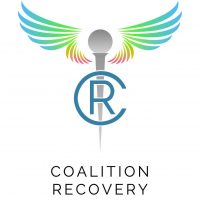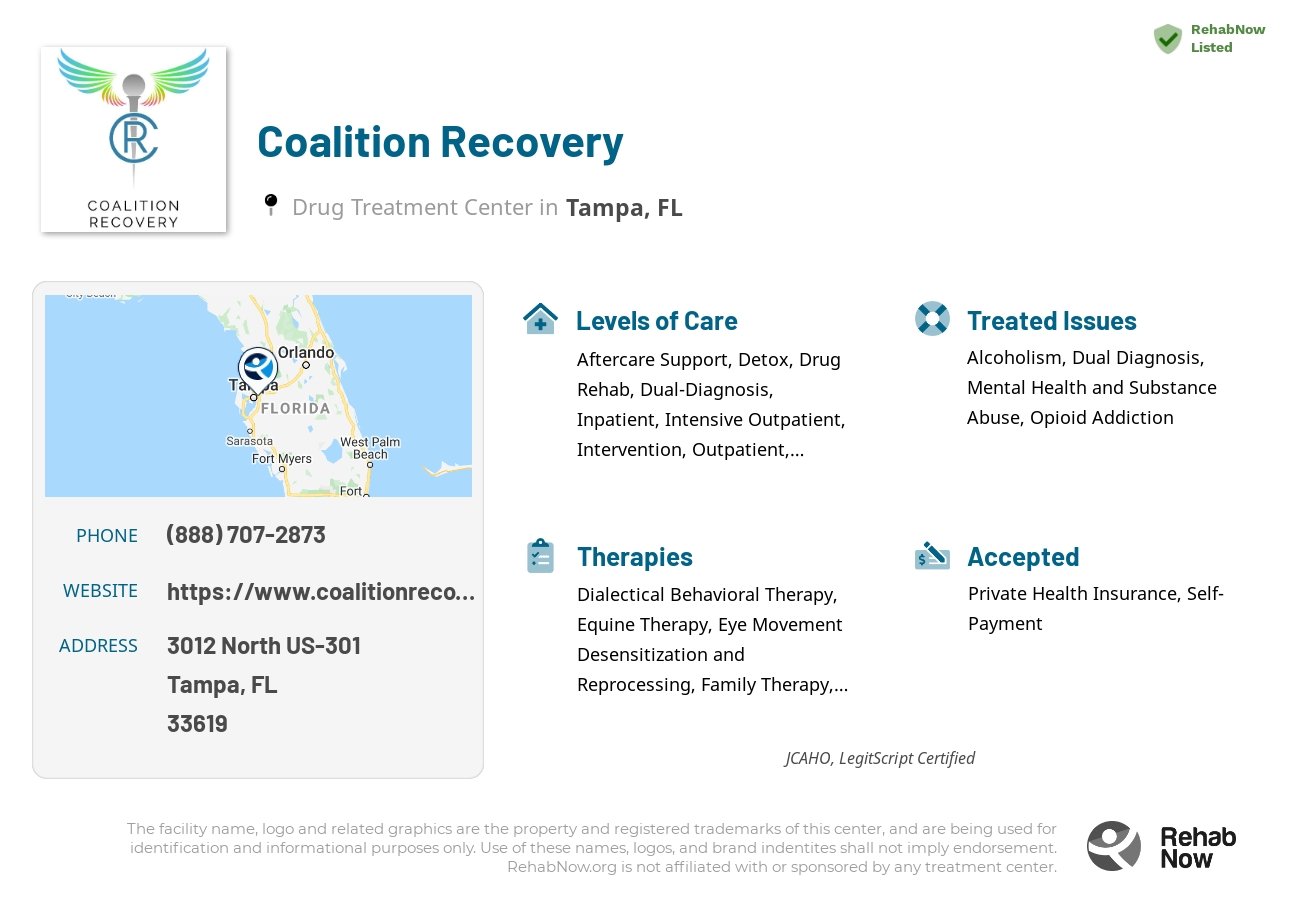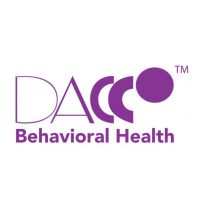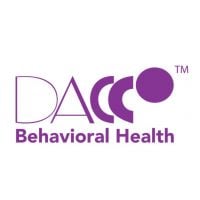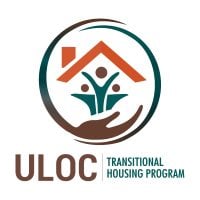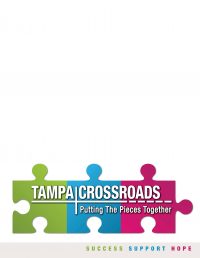Coalition Recovery
Drug Rehab Center in Tampa, Florida
Located in Tampa, Florida, Coalition Recovery is a highly reputable and accredited treatment facility that provides comprehensive services for alcoholism, drug addiction, and mental health issues, including personalized rehab programs, dual-diagnosis treatment, intervention services, detoxification programs, inpatient and outpatient care, and aftercare support.
About Coalition Recovery in Florida
Coalition Recovery, located in Tampa, FL, specializes in a comprehensive approach to overcoming drug and alcohol addiction, alongside treating mental health disorders. Their commitment to individualized care combines therapy and medication, supported by innovative treatment methods and a compassionate team. With a focus on both part-time and full-time programs, Coalition Recovery stands out for its personalized treatment plans and aftercare support.
- Wide Range of Services: Offers intensive outpatient, PHP, inpatient, and detox services, catering to various levels of addiction and mental health needs.
- Individualized Aftercare: The Renaissance Program provides tailored support for life after treatment, including job placement, education opportunities, and an alumni network.
- Accredited and Certified: Holds certifications from JCAHO and LegitScript, ensuring high-quality care and treatment standards.
Coalition Recovery is not only recognized for its comprehensive treatment options but also for its commitment to accessibility, accepting private health insurance. Their vision ensures that anyone in need of treatment for addiction and mental health disorders receives the necessary care.
The facility addresses a range of issues, including alcoholism, opioid addiction, substance abuse, and dual diagnosis. Treatment methods are diverse, incorporating personalized drug rehab programs, dual-diagnosis treatment, and various levels of care to support recovery at every stage.
Genders
Ages
Modality
Additional
Religion / Spirituality
Christian
Accreditations

LegitScript

JCAHO
Conditions and Issues Treated
Substance abuse is defined by the continued use of drugs or alcohol despite negative consequences, such as legal or work problems. It can be treated using a variety of services, including therapy and medication.
Substance abuse treatment is beneficial for:
- People who have been using drugs or alcohol for a long time.
- People who have been using drugs or alcohol to cope with stress, anxiety, or depression.
- People who have a mental health disorder in conjunction with substance abuse.
- People who continue to use drugs or alcohol despite the harmful effects they cause on their own life and the lives of others.
- People who have had multiple failed attempts at recovery without medical assistance.
If you believe that addiction treatment is right for you or a loved one, you can contact your primary care physician, or search for addiction treatment centers in your area. Treatment is beneficial to people who are motivated towards recovery, and who understand the benefits of professional care.
Opioid addiction is a common form of addiction, often caused by prescription drugs that are abused. Addiction is treated by detoxifying the body and following up with therapies to correct behavior and target the root of the problem.
Most opioid addiction begins with patients being prescribed painkillers after an injury or surgery. The body becomes used to the chemicals in these medications and soon no longer responds to their presence. As a result, addicts seek out stronger opiate-based medications like Oxycodone to compensate for the lack of effectiveness.
The most dangerous aspect is that these addictive behaviors often get carried over onto illicit drugs like heroin, which are increasingly potent and result in lower life expectancies.
Dual Diagnosis treatment centers like Coalition Recovery provide this treatment tailored to the patient’s specific needs, and they also have a specialized focus on addiction treatment. Drug and alcohol addiction often coexists with another mental illness, such as depression or schizophrenia. In other words, drug addiction is only a symptom of a deeper problem.
When addiction enters into the picture, it can often lead to dangerous consequences in the addict’s life. For example, when addiction is paired with major depression, it can lead to suicidal thoughts or actions. When someone is addicted to drugs or alcohol, they often experience a failure to control their impulses and difficulty decision-making.
Dual diagnosis for drug addicts can be very effective when treating drug addiction in Tampa, FL.
Levels of Care Offered
This center offers a variety of custom treatment tailored to individual recovery. Currently available are Aftercare Support, Detox, Drug Rehab, Dual-Diagnosis, Inpatient, Intensive Outpatient, Intervention, Outpatient, Partial-Hospitalization, with additional therapies available as listed below.
Detox is the body’s process of removing toxins. In substance abuse, detox refers to the process of getting rid of drugs already present in the system once the patient stops further intake. Detox is the initial recovery step. Physiological drug dependence over time can lead to symptoms of withdrawal. Depending on the symptom severity, the detox process is managed either medically or clinically. While medically assisted detox relies on specific medicines, clinical or social detox relies on providing the patient with emotional and psychological support.
The inpatient rehab at Coalition Recovery promises an intense and effective treatment. Inpatient rehabs are particularly recommended for those with a severe addiction to drugs. Detoxing at a rehab center ensures that the patient receives 24-hour medical supervision to ensure the best possible chance of recovery. Medical staff is readily available to intervene in case of withdrawal symptoms or other complications. This is not the case with outpatient treatment, where patients may be discharged after the detoxification process is complete.
Inpatient facilities provide residential and holistic treatment, with access to experienced medical professionals and rehab specialists. This ensures the best possible recovery and is recommended for patients with severe addiction seeking drug treatment.
Intensive Outpatient Programs (IOPs) are a form of drug treatment that allows individuals to receive the therapy they need while remaining in their homes and community. IOPs allow for the flexibility to continue working and living at home while still meeting treatment demands.
Outpatient treatment programs are less intensive than an inpatient program. Participants live at home while working or going to school. Benefits include being able to continue relationships with family, friends, and work/studies. Treatment includes educating patient on addiction to drugs, medication, and counseling. Benefits include being able to continue relationships with family, friends, and work/studies. Treatment includes educating patient on addiction to drugs, medication, and counseling. Counseling sessions are for either individual or group.
A Partial Hospitalization Program is the safest way for a person suffering from addiction to get treatment without putting their family at risk. The addict has the freedom to check in and out of treatment, yet they still receive outside guidance and confinement if needed to beat their addiction.
An addict in a Partial Hospitalization Program will meet with medical and psychological professionals and undergo drug testing, all of which can lead to a diagnosis and the beginning of an effective treatment plan. Treatment can include individual counseling, group therapy, family therapy, community support sessions, and more.
Drug rehab intervention aims to make sure patients understand the risks of their addiction and possible outcomes if they continue their behavior. They must learn how their addiction affects those around them and allow a therapy session to help move past the physical symptoms.
Interventions are used in drug rehab to help patients overcome their addiction to drugs. They often include psychotherapy or behavioral therapy, group therapy, family counseling, and peer support. Each intervention is designed to provide a unique perspective of how the addiction occurs and what can be done to stop it.
Aftercare Support in drug rehab is crucial because it helps people stay sober after treatment. The benefits of Aftercare Support are that it provides a pathway that will help people get sober for life. It supports healing at all levels, physical, mental, emotional, and spiritual.
Therapies & Programs
Individualized Treatment is essential because it gives addicts the ability to participate in a program that meets their unique needs. An addict should work with professionals who understand what they’re going through, especially if the addict is actively using.
Trying to find a treatment program that meets your needs can be challenging. It’s even more complicated if you don’t know what kind of treatment you need. Being able to have professionals who are experienced with treating your situation is key to getting sober. Finding the right treatment program for an addict is difficult, but it’s even harder without communicating with those who have experience treating your specific situation.
Family dysfunction can often be the underlying cause of substance abuse. To get sober, you need to find a different way to cope with the pain in your life. Family therapy can help you and your family deal with old issues that may trigger substance abuse. It will help everyone understand why each member of the family feels and acts the way they do. It can give everyone new tools to manage their emotions so that they don’t want to drink or do drugs.
A person looking for drug recovery should know that group therapy is an essential tool. Group therapy provides accountability and friendship to people with addiction. It is recommended as a lifetime treatment habit. Group therapy occurs in a group setting as opposed to a one-on-one setting. It benefits patients by providing a feeling of support and letting them know they are not alone. Patients at Coalition Recovery also learn to build trust and understanding and gain perspective through discussions.
If you are looking for a drug addiction treatment program that also provides trauma therapy, then Coalition Recovery in Tampa, FL is a great option. The staff at this facility specialize in helping people process and understand the past traumas that have led them to addiction. This approach can help individuals move forward with their recovery and take a better hold of their sober future.
The benefits of trauma therapy at Coalition Recovery in Tampa, FL are as follows:
- People will become less likely to engage in self destructive behaviors.
- Their emotional and mental health will significantly improve.
- They will be more confident in their abilities to live an addiction-free life.
- People will be able to connect with other people on a deeper level.
- Their problems with intimacy and trust will improve.
Dialectical behavior therapy is a type of cognitive-behavioral therapy that focuses on eliminating specific negative thoughts that can potentially lead to an individual inflicting self-harm. It helps treat patients exhibiting uncontrollable emotions, intense mood swings, and borderline personality disorders.
The term “dialectic” means the integration of opposites. In the substance abuse context, dialectical behavior therapy refers to accepting the patient’s addiction and changing their thoughts and behavior. It improves life skills such as controlling intense emotions without reacting impulsively, resolving interpersonal conflicts effectively, and promoting awareness about self and others.
Cognitive behavioral therapy (CBT) is a type of psychotherapeutic treatment that is focused on changing negative ways of thinking that contribute to addictive behavior.
Cognitive behavioral therapy is beneficial for:
- People who are seeking to overcome addictive behavior
- Those who struggle with addictive behavior and mental illness
- People who have a genetic history of addiction in their family
- Those who don’t want to depend on medications
- Those who need a more practical treatment approach
Eye Movement Desensitization and Reprocessing (EMDR) is an integrative psychotherapy approach that has been extensively studied and proven effective for treating trauma. EMDR is a set of standardized protocols that incorporates elements from many different treatment approaches. EMDR therapy promotes information processing of external stimuli, memories, thoughts, and feelings. EMDR sessions typically last 50-90 minutes and can be completed in as little as 12-15 sessions. However, many individuals with chronic trauma histories require more than 50 EMDR sessions to achieve significant symptom relief.
EMDR therapy treats individuals, children, and adults of either gender exposed to one or more traumatic events. EMDR cannot cause someone to forget details of the traumatic event(s), nor does EMDR focus on exploring the past trauma(s). EMDR has been demonstrated effective for survivors of various traumas, including accidents, natural disasters, violent crimes, sexual abuse, and combat stress.
EMDR is most effective when the client has completed a thorough psychiatric evaluation to rule out or treat any co-existing mental health problems. EMDR therapy does not involve hypnosis or abreaction (catharsis) of traumatic memories. EMDR is a goal-directed therapy in which the client works with the therapist to develop an individualized treatment plan that focuses on specific trauma memories and associated disturbance.
Life skills training is beneficial for addicts in recovery because it helps them learn how to take care of themselves and improve their quality of life, which can promote feelings of purpose and motivation.
This type of treatment works by teaching individuals life-enhancing skills that support positive living, including:
- Healthy lifestyle habits
- Skills to effectively manage stress
- Effective communication skills to help them get their needs met without turning to drugs or alcohol
- Money management and budgeting skills so they can continue to take care of themselves after treatment ends.
Thinking about nutrition is an odd thing when you’re strung out. You are probably so low physically that all you want to do is sleep, eat comfort food and get high again. It’s hard to imagine having enough energy to care about what kind of food you are eating but think about it. Your body has gone through some severe physical stress, so it is vital to give it the building blocks it needs to recover. It’s equally important to remember that malnutrition can affect your mood and energy level, which affects your desire to get sober.
If you’re eating right, you’ll have more energy for productive activities, such as going to meetings or being with other sober people in Tampa, Florida. You’ll have more strength to fight cravings, and you won’t be so low that they are overwhelming. You will think clearly enough to make sober decisions. Finally, good nutrition helps keep your body strong against the familiar ravages of drug use–tuberculosis, hepatitis, abscesses, infections, etc.—as well as the physical symptoms of withdrawal.Nicotine replacement therapy can help addicts reduce or eliminate their cravings for nicotine. By replacing the harmful substances in tobacco with less potent chemicals, most smokers can gradually wean themselves off cigarettes without experiencing intense cravings.
During these sessions, a therapist will work with the addict to gradually reduce their dependence on nicotine by controlling how much they smoke and providing appropriate breaks between cigarettes. Using this type of therapy in combination with other strategies can help smokers learn how to quit smoking for good and avoid relapse.
Patient Experience
Creative Arts
In Creative Arts Therapy for addicts, the final product matters far less than the experience of creation and expression itself. It is believed that enhancing creativity and developing skills related to it can help people recover faster. Activities such as painting, writing, acting, and dancing are considered therapeutic and hosted and managed by Coalition Recovery in Tampa, FL. They become outlets for patients to blow off steam, channel their emotions, and express their thoughts and feelings.
Experiential Therapy at Coalition Recovery
Experiential therapy is a type of therapy that has been found to be effective in the treatment of substance abuse. It is a “hands-on” approach, which can involve anything from acting to rock climbing. The individual must trust the therapist for this therapy to work. This therapy helps individuals revisit and heal from past traumas and has been used in various behavioral and eating disorders.
Equine Therapy in Florida
Horses are remarkable animals. They show enormous resilience in the face of adversity, and they inspire us to be better people. Just spending time with a horse can provide a person with significant psychological benefits due to the animal’s unique ability to encourage unconditional love and acceptance in people. The calming presence these animals provide is invaluable to many people dealing with addiction and mental health disorders.
Fitness Therapy
Exercise releases feel-good chemicals and can improve self-esteem. Physical fitness can also help increase abstinence rates, ease withdrawal symptoms, and improve depressive symptoms. Fitness therapy is part of the holistic approach and comprehensive care provided in substance abuse treatment. It does not involve the vigorous exercise regimes used in fitness programs.
A fitness therapy program at Coalition Recovery achieves improved attention, cognitive functions, and memory power. Additionally, endorphins released during exercise reduces anxiety and stress levels and enhance calmness. Fitness therapy complements other therapies used in a residential or outpatient treatment program.
Payment Options Accepted
For specific insurance or payment methods please contact us.
Is your insurance accepted?
Ask an expert, call (888) 674-0062
Additional Details
Specifics, location, and helpful extra information.
Tampa, Florida 33619 Phone Number(888) 707-2873 Meta DetailsUpdated April 15, 2024
Staff Verified
Is Coalition Recovery a LegitScript Verified Treatment Facility?
According to our most recent records, we have found this center to be LegitScript verified.
Coalition Recovery Patient Reviews
There are no reviews yet. Be the first one to write one.
Tampa, Florida Addiction Information
Florida is one of the nation's epicenters for substance abuse and drug-related overdoses. In 2014, around 410,000 Florida residents were addicted to drugs and alcohol. Over the last 10 years, 12% of all deaths in the state were attributed to substance abuse. Treatment admissions for alcohol reached 24,329 patients in 2016, and 2.5% of Florida high school students admitted to using crack cocaine.
Tampa, Florida has a serious problem with drug addiction and abuse. The city is one of the top 25 most dangerous cities in America for drug abuse. The most commonly reported primary drugs of abuse were heroin (25.4%), alcohol (24%), cocaine (17.9%), and marijuana (13%). There are various treatment options available for those struggling with addiction in Tampa, Florida. These include inpatient and outpatient treatment, 12-step programs, and therapy.
Treatment in Nearby Cities
- Leesburg, FL (65.0 mi.)
- Palm Springs, FL (167.1 mi.)
- Lecanto, FL (61.3 mi.)
- Wakulla Springs, FL (195.6 mi.)
- Harold, FL (329.8 mi.)
Centers near Coalition Recovery
The facility name, logo and brand are the property and registered trademarks of Coalition Recovery, and are being used for identification and informational purposes only. Use of these names, logos and brands shall not imply endorsement. RehabNow.org is not affiliated with or sponsored by Coalition Recovery.
